It may have fallen on hard times in recent years, but the Central Motion Pictures Corporation (CMPC) has a proud tradition of movie making behind it, one, it insists, it will continue to uphold.
"Making movies will always be the fundamental business of the company. And we will keep going," insisted Chiu Shun-ching (
When a CMPC film picked up a Golden Horse (
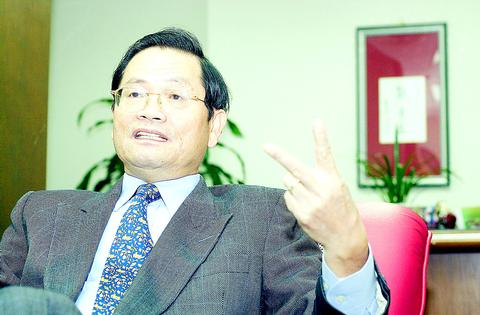
CMPC is one of the very few film companies dedicated to investing in and producing local films. This perseverance in the face of a far from encouraging economic climate is somewhat ironic, given the company's background as a KMT property with a strongly political agenda.
But over and above this, its history is also a reflection of the ups and downs of Taiwan's film industry as a whole.
The glory days
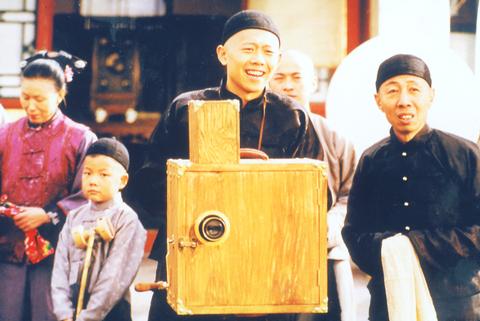
PHOTO: CMPC
"In those glorious days, the company's lights were never off. During the day we shot films in the studio and at night post production workers and printers were hard at work," recalls Chiu. "During that time [the 1950s], we produced 100 films a year," he added. This is in sad contrast to the six or seven it is likely to release for 2001.
During the 1950s, the most popular films were Japanese and Taiwanese-language films. Hollywood had not entered the market and the Hong Kong film industry was still learning about film production from Taiwan. Taiwanese product from Central Motion Pictures Studio and Taiwan Film Studio (台灣製片廠, which closed two years ago), were distributed across the entire SE Asian market.
All this took place not long after 1943, when CMPC was founded directly under the supervision of the KMT's Cultural Affairs Department (
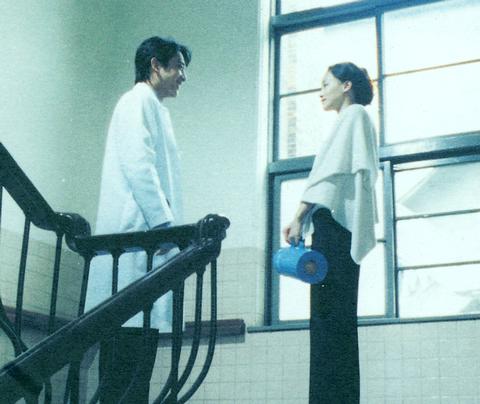
PHOTO: CMPC
During its heyday, CMPC owed one studio, the Central Motion Picture Studio (
"It was a big monopoly that incorporated the whole industry from top to bottom," said Hsiao Yeh (小野), a former production manager at CMPC and currently a programming manager at Taiwan Television Corporation (台視, TTV).
As a company owned by a political party, the majority of films made in the three decades between 1950 to 1970 were made up of "healthy" dramas, family romances and war films. The last of these were especially numerous, many having stories set against a WWII Pacific theater background, or films of anti-communist propaganda. Titles such as 800 Heroes (
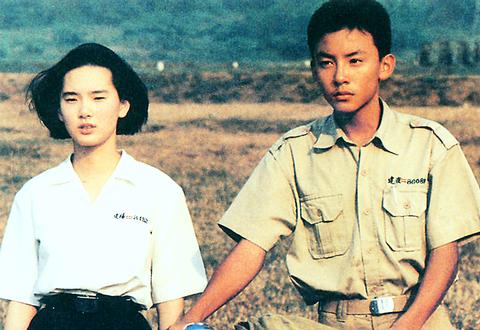
PHOTO: CMPC
"At that time, senior posts such as chief mangers and above were always given to people with military or intelligence backgrounds. And we made our films according to policies from above," said Hsiao Yeh.
Fighting the flood
In the 1980s, Hollywood films began to flood major cinemas, and production and acting talent, as well as audiences, were drawn away by television. According to Chiu, production volume dropped as a result.
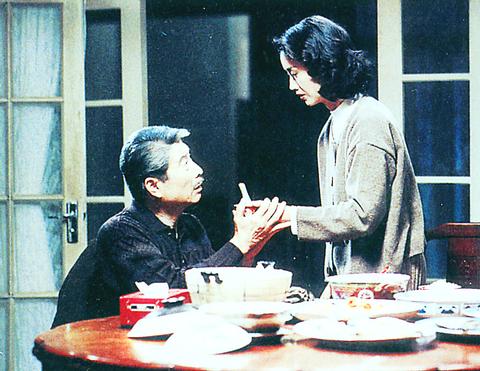
PHOTO: CMPC
But the slump in the 1980s was a turning point for CMPC, causing it to change direction and indirectly giving birth to the New Taiwan Cinema. The films of this period are typified by their sympathetic look at Taiwanese society and a realist cinematic presentation.
"When we joined the company, we knew that it had lost money on its previous big-budget war films, so we suggested that the company hire new directors, use non-professional actors and make low-budget films," said Hsiao Yeh, who is also a well-known novelist and scriptwriter.
It was Hsiao Yeh who pushed through films like the The Sandwich Man (
Films such as these gained great critical success and established the foundations of the New Taiwan Cinema. Moreover, films by Hou and Edward Yang (
"Now I look back, the company was like a dinosaur. It may have been very slow on its feet, but once the head changed direction, the body followed, and tremendous changes could happen. At that time, we were a bunch of idealists who made films that were somewhat against the KMT ideology. But we survived because we wanted to make good films," said Hsiao Yeh.
In the 1990s, the CMPC continues to invest in new films, giving opportunities to first-time filmmakers. Directors such as Ang Lee (
"We are like a nursery garden that fostered new talents. Those people may not work with us anymore, but we have no regrets," said Chiu.
But he recognizes that the golden age has definitely passed.
Although CMPC continues to invest in filmmakers such as Ann Hu (
"Other film companies have transformed themselves into distribution companies that only buy films from overseas for local distribution. But we, some might say foolishly, still continue making films," said Chiu.
With the KMT's loss of political power last year, the party began to privatize party assets in the face of criticism from the former opposition parties. Many of its properties have been sold off; but more importantly for its survival is the fact that it cannot hold on to the talent that it attracted in its days of glory. A highly bureaucratic corporate culture and the presence of unprofessional management groups have seen men like Tu Duu-chih (杜篤之) and cinematographer Lee Ping-bing (李屏賓) leave the company to become well-established artists in their own right.
"If the company wants to keep from shrinking," said Hsiao Yeh, "bringing in professional management or changing its corporate culture are the only two alternatives."

That US assistance was a model for Taiwan’s spectacular development success was early recognized by policymakers and analysts. In a report to the US Congress for the fiscal year 1962, former President John F. Kennedy noted Taiwan’s “rapid economic growth,” was “producing a substantial net gain in living.” Kennedy had a stake in Taiwan’s achievements and the US’ official development assistance (ODA) in general: In September 1961, his entreaty to make the 1960s a “decade of development,” and an accompanying proposal for dedicated legislation to this end, had been formalized by congressional passage of the Foreign Assistance Act. Two

March 31 to April 6 On May 13, 1950, National Taiwan University Hospital otolaryngologist Su You-peng (蘇友鵬) was summoned to the director’s office. He thought someone had complained about him practicing the violin at night, but when he entered the room, he knew something was terribly wrong. He saw several burly men who appeared to be government secret agents, and three other resident doctors: internist Hsu Chiang (許強), dermatologist Hu Pao-chen (胡寶珍) and ophthalmologist Hu Hsin-lin (胡鑫麟). They were handcuffed, herded onto two jeeps and taken to the Secrecy Bureau (保密局) for questioning. Su was still in his doctor’s robes at

Last week the Democratic Progressive Party (DPP) said that the budget cuts voted for by the China-aligned parties in the legislature, are intended to force the DPP to hike electricity rates. The public would then blame it for the rate hike. It’s fairly clear that the first part of that is correct. Slashing the budget of state-run Taiwan Power Co (Taipower, 台電) is a move intended to cause discontent with the DPP when electricity rates go up. Taipower’s debt, NT$422.9 billion (US$12.78 billion), is one of the numerous permanent crises created by the nation’s construction-industrial state and the developmentalist mentality it

Experts say that the devastating earthquake in Myanmar on Friday was likely the strongest to hit the country in decades, with disaster modeling suggesting thousands could be dead. Automatic assessments from the US Geological Survey (USGS) said the shallow 7.7-magnitude quake northwest of the central Myanmar city of Sagaing triggered a red alert for shaking-related fatalities and economic losses. “High casualties and extensive damage are probable and the disaster is likely widespread,” it said, locating the epicentre near the central Myanmar city of Mandalay, home to more than a million people. Myanmar’s ruling junta said on Saturday morning that the number killed had